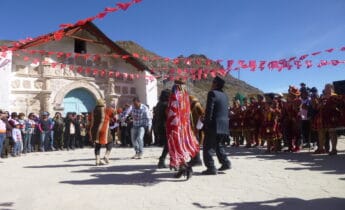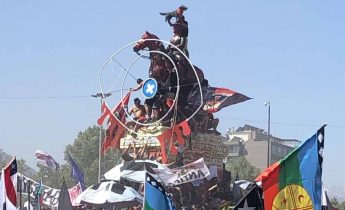Personal Details: Muñoz, Catalina
Co-director (since August 2020) | Mitherausgeber
Member PHW Executive Board
Catalina Muñoz Rojas, Ph.D. en Historia 2009, es Profesora Asociada de Historia en la Universidad de los Andes en Bogotá, Colombia. Su trabajo se concentra en los usos públicos de la historia en torno a asuntos contenciosos del presente. Su proyecto actual explora el rol de los historiadores y del conocimiento histórico en procesos de justicia transicional, en el marco del proceso de paz colombiano. Desde el año 2016 ha sido una de las líderes del proyecto Historias para lo que viene el cual ha diseñado e implementado diferentes estrategias para enriquecer el debate público sobre la construcción de paz en Colombia desde una perspectiva histórica.
Algunas de sus publicaciones incluyen “Moving pictures: memory and photography among the Arhuaco of the Sierra Nevada de Santa Marta, Colombia” en History and Anthropology (2017), y “Contentious Memories: History and Urban Redevelopment in Bogotá, Colombia” publicado en el Journal of Urban Affairs en co-autoría con Friederike Fleischer (2020).
Ha servido en el Comité Directivo de la International Federation for Public History (2016-2020) y como miembro del Comité Editorial de la revista International Public History (2021-2024).
Catalina Muñoz Rojas, PhD in History 2009, is Associate Professor of History at the Universidad de los Andes, Bogotá, Colombia. Her work focuses on the public uses of history around contentious issues of the present. Her current project explores the role of historians and of historical knowledge in transitional justice in the context of the Colombian peace process. Since 2016 she has been one of the leaders of the project Historias para lo que viene which has designed and implemented different strategies to enrich public debate about peacebuilding in Colombia from a historical perspective.
Her publications include recently “Moving pictures: memory and photography among the Arhuaco of the Sierra Nevada de Santa Marta, Colombia” in History and Anthropology (2017), and “Contentious Memories: History and Urban Redevelopment in Bogotá, Colombia” published in the Journal of Urban Affairs in co-authorship with Friederike Fleischer (2020).
Dr. Muñoz served in the Steering Committee of the International Federation for Public History (2016-2020), and as member of the Editorial Board of the journal International Public History (2021-2024).
Catalina Muñoz Rojas, Dr. phil., promoviert 2009, ist Professorin für Geschichte an der Universidad de los Andes, Bogotá, Kolumbien. Ihre Arbeit focussiert den öffentlichen Umgang mit Geschichte im Zusammenhang mit strittigen Fragen der Gegenwart. Ihr aktuelles Projekt untersucht die Rolle von Historikerinnen und Historikern sowie von historischem Wissen in der Vergangenheitsaufarbeitung im Rahmen des kolumbianischen Friedensprozesses. Seit 2016 ist sie eine der Leiter*innen des Projekts "Historias para lo que viene", das verschiedene Strategien entworfen und umgesetzt hat, die öffentliche Debatte über Friedensförderung in Kolumbien aus historischer Perspektive zu bereichern.
Zu ihren jüngsten Publikationen zählen “Moving pictures: memory and photography among the Arhuaco of the Sierra Nevada de Santa Marta, Colombia” in History and Anthropology (2017) und “Contentious Memories: History and Urban Redevelopment in Bogotá, Colombia” veröffentlicht im Journal of Urban Affairs zusammen mit Friederike Fleischer (2020).
Dr. Muñoz war Mitglied des Vorstands der International Federation for Public History (2016-2020) und ist Mitglied der Redaktion der Zeitschrift International Public History (2021-2024).
-
The Challenges of Interculturality in the Americas
Los retos de la interculturalidad en las Américas
The Challenges of Interculturality in the Americas
This dossier invites to focus on interculturalities as an epistemological approach, a dialogical method and an aspiration of inclusiveness.
-
History, Memory, and Violent Pasts in Latin America
Historia, memoria y los pasados violentos en América Latina
History, Memory, and Violent Pasts in Latin America
The histories of most Latin American countries and peoples carry strong legacies of human rights violations.